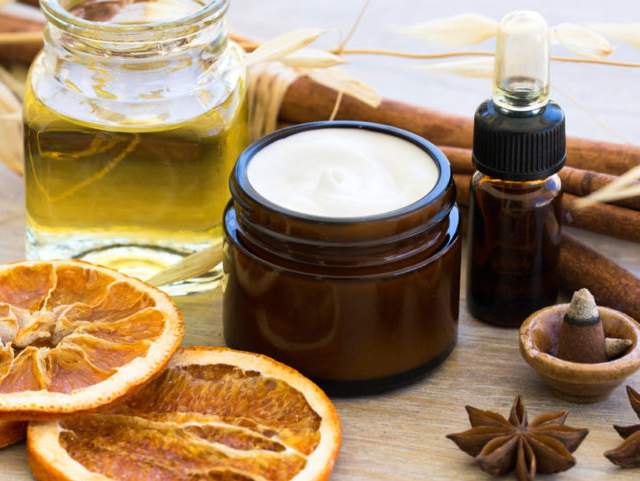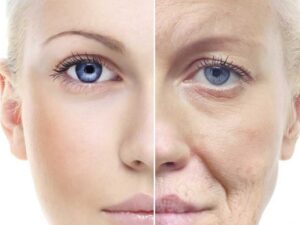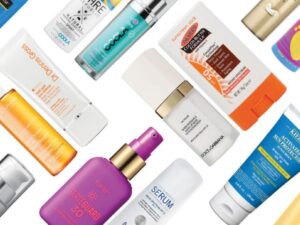There is definitely a growing interest in the ‘back-to-nature’ beauty regime, with special interest in make-it-yourself cosmetics. However, do you know how to select beauty ingredients based on your skin type?
There are various motivations one might have to go green with their beauty regime. You might want to try it to stay away from synthetic chemicals, toxins and preservatives. Perhaps you are looking for skin care that is environment-friendly. Some are interested in home-made skin care as it is easier on the pocket. Some just love the creativity of the whole process.
However, contrary to popular opinion, home remedies are not 100% fool-proof. If you don’t know what you are doing, you could end up with rashes, burns, pigmentation or acne. One must understand the unique properties of each herb and botanical, to learn how to use them to optimal effect. Read on to learn more about natural skin care ingredients and their skin and hair boosting properties –
1) Apple Cider Vinegar (ACV) has an unbelievable range of various skin, beauty and health benefits. It is an excellent cleanser, astringent and toner for oily and acne prone skin. Add apple cider vinegar and organic manuka honey to some fuller’s earth (or powdered green tea), to create your own deep cleansing face pack. Look for the organic or unpasteurized variety for superior results.
You can also use diluted ACV to rinse your hair. It cleans away oil build up and dandruff, leaving your hair soft and tangle-free. Use this trick if you have oily and curly hair. Adding a few teaspoons of ACV to your bath water can reduce body odour as well.
2) Aloe Vera grows easily in Indian soil and originated in Africa. It is relatively inexpensive, easily available, and a beauty workhorse with over 100 all-natural nutritional and beauty benefits. It is a moisturizer, an antioxidant, an anti-ageing remedy, can soothe burns, heat rash, prickly heat and inflammed acne. It can be applied over cuts, wounds and blisters. It can soothe your skin after a facial or a chemical peel.
The pulp can be mixed with coconut oil, warmed over a gentle flame and applied to hair- this works as an excellent conditioner for dry and damaged hair.
3) Oats are a kind of cereal and well regarded as a nutritional powerhouse. Oats are effective in fighting dead skin and are hugely beneficial for anyone suffering from Eczema. It contains polysaccharides , which turns gelatinous in water and forms a film over the skin, thus acting as a natural moisturizer. Oatmeal baths also provide relief and soothing from itching and insect bite allergies. It is a natural cleanser, an excellent exfoliant, and has some skin lightening benefits too.
4) Turmeric is an important part of any Indian’s life. Turmeric has antiseptic properties and is an excellent exfoliant. Raw organic turmeric is almost 100% safe. It has been used to lighten a tan and heal acne. It is a good pick-me-up for your skin if your skin is looking dull and fatigued. It has also been used to peel off facial hair, treat burns and skin infections. It is generally mixed with sandalwood powder and gram flour to form a home-made face pack. You can add milk cream or honey for a moisturizing effect. Because of its yellow stain, it is best suited for brown-skinned individuals.
5) Coconut oil is an excellent emollient to soften your skin and hair. It cannot, however, improve hair fall or balding. Coconut oil massage is safe and healthy for infants. It is excellent for older men and women with dry and itchy skin. Add it to your bath water or apply directly onto your skin. Nursing women can safely use it on sore nipples. It can also be used to loosen the flakes and reduce the irritation of cradle cap in babies.
6) Henna is an integral part of Indian and Middle-Eastern culture. It is a flowering herb which imparts a natural orange-red stain when the leaves are dried and powdered, or crushed, to form a paste. Henna helps to strengthen and condition hair, prevent premature graying, and protects against split ends when applied as a mask. Henna also has antibacterial and antifungal properties. Royal families in Persia used henna powder as a body scrub as well.
7) Argan oil is derived from a nut that only grows in Morocco. It is rich in Vitamin A, Vitamin E, antioxidants, linoleic acid and omega 3 fatty acids. It is an excellent moisturiser for your skin and hair. It can prevent stretch marks and split ends. It can even soothe acne and razor burns! It smells great, and is light enough to leave your skin and hair feeling hydrated but not greasy. The real magic of Argan oil is on the scalp and hair. It works as an excellent leave – on conditioner and styling oil for your hair. It is perfectly safe to use on chapped lips and brittle nails as well.
Dermatologists also use botanical extracts along with vitamins, minerals and animal extracts in anti-acne, skin-lightening and anti-ageing creams. Classic examples include licorice, arbutin (from berries), glycolic acid (sugarcane), lactic acid (sour milk), kojic acid (mushrooms), azelaic acid (from rye and barley), gold nanoparticles and emu oil, to name a few.
Oil cleansing involves using oil and a hot towel to dissolve make up, excess skin sebum and dirt. It unclogs your pores without stripping your skin off its natural oils. Choose jojoba or grapeseed oil if you have oily skin. Pick olive oil, sweet almond oil or argan oil for dry or ageing skin. The oil can be blended with astringent (1 part astringent to 3 parts blending oil) for oily skin.
Aromatherapy is a form of therapy that uses volatile essential oils from plants and flowers for the purpose of affecting a person’s skin, mood or health. Here is the list of most popular Essential Oils and what benefits they can offer for your skin –
1) Tea Tree Oil – is a native of Australia and is most famous for its oil-regulating and anti-acne properties. It is natural anti-bacterial and anti-inflammatory qualities.
2) Rose oil – excellent for dry, inflamed or irritated skin. Used to manage Rosacea and sunburns.
3) Calendula & Chamomile – used routinely by Homeopaths to treat dry inflamed or itchy skin. Soothes eczema , insect bites, diaper rashes and bed sores.
4) Carrot seed essential oil – protects against sun damage and wrinking. It strengthens the hair as well.
5) Frankincense essential oil – is a natural toner. It helps to tighten pores, reduce skin pigmentation, scars and acne.
6) Lavender oil is calming to the skin.
7) Geranium oil & Ylang Ylang oil is great for oily and acne-prone sensitive skin. Geranium oil has insect repellent properties as well, while Ylang Ylang oil can clear dandruff.
8) Neroli oil is used to prevent wrinkles, scars and stretch marks.
9) Juniper is great for wounds and cellulite.
10) Patchouli and Myrrh essential oil is good for ageing skin. Patchouli is a good insect repellent. Myrrh can strengthen the roots of your hair and is currently being studied for potential benefit in curing skin cancers.
11) Arnica can prevent bruising
12) Clary sage can reduce skin puffiness and is an excellent deodorant as well.
For oily skin, use tea tree oil, lemongrass, geranium oil, orange essential oil, cypress or ylang ylang oil.
For dry/mature skin, use Calendula, Rose Oil, Patchouli or Chamomile.
For spots and blemishes, use Frankincense essential oil, Lemon essential oil, carrotseed oil or Lavender oil.
A word of caution –
Essential oils must not be applied directly to the skin. They must be diluted in a carrier oil like olive oil or sweet almond oil. 1 ounce (29 ml) of carrier oil must contain not more than 15-20 drops of essential oils. Applying an essential oil directly to the face (without dilution), can cause skin and eye irritation.
A few of these oils can be extremely toxic, if ingested orally; therefore children must be kept out of reach. Eucalyptus oil, peppermint oil and Wintergreen must not be used in children less than 3 years of age. Neem oil and mustard oil have been linked to skin pigmentation disorders.
Certain essential oils like orange, lemon and bergamot must never be used in the day time as they undergo a chemical reaction under sunlight, which can lead to sunburn like reaction.
If you experience any skin rashes following use of these oils, contact your dermatologist, and if possible, carry the oil with you, so that the allergic reaction can be confirmed with a repeat-open-application-test.
Lastly, essential oils can corrode plastic, so always store them in dark glass containers.




